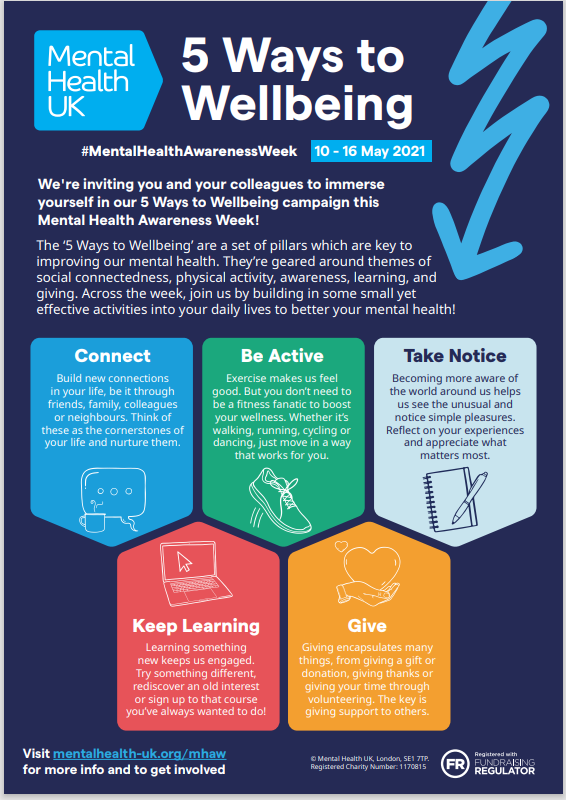Dear Parents and Guardian
Right now all of our students from Year 7 to Year 13 are preparing for assessments. Year 11 and 13 have their ongoing ‘mini tests’, Year 7, 8 and 9 start their assessments on Monday 17th May and Year 10 and 12 have a little longer to revise as their end of year PPEs are after half term.
Testing is an inevitable part of school life and consequently it is not only really important that our students understand what they are learning in lessons but also that they “up” their capacity to memorise information.
Cognitive scientists write a lot about how the brain works and what it means for teachers and students in the classroom. Daniel Willingham, an American cognitive psychology said ‘memory is the residue of thought’ which sums up nicely the process of revising.
So many edu-psychologists have written books on revising and linking it to how the brain works …their tips are all designed to move information from the short term memory to the long term memory…and this is the key for productive revision. The tips include:
- Students need to revise something three times for it to shift into the long term memory or ‘stick’.
- They also talk about retrieval practice helping the transfer of information from the short term to the long term memory…..this basically means lots of self-quizzing (revision cards with questions on one side and answers on the other) or having someone be the quiz master (ie parents). Again when students have to draw out the information and verbalise or write it down without looking at notes this tends to help the information stick.
- Look, learn, cover, write, check is the way lots of our students learnt how to spell and it is still a great way to learn information for an assessment.
- For students taking GCSEs the finishing touch is to have a go at past papers, timed and without looking at notes. Then they should check against the answers to note gaps in knowledge and to relearn these sections.

Forest Paths Metaphor
One’s life, or mind, or brain, is like a forest with many paths. We have shared this with students in assemblies for years! There is some literal truth to this metaphor, in that the connections in the brain that form memories and patterns of behaviour, most likely exist as pathways between many different neurons, with the pathways consolidated and strengthened further every time they are activated….in the case of revision through self-quizzing or re writing notes without looking and then checking after.
Your daughters and sons need to put in hard work forming new paths – learning new material for every subject/topic and revisiting so they become well-trodden. If they don’t revisit – they can become over grown…the students forget….but it is not such hard work to clear an overgrown path…The idea is that revision improves the speed (students are able to get info quickly on the day-in exam for example) and accuracy just like the path in the wood. If not well trodden it can easily lead the student in the wrong direction and/or it can take longer to get to the information.
Effective revision is about ‘spaced practice’ …..learning the information once…leaving it for a day or two and then going back to it for a second time….leaving it for another day or two and then going back for a third time…to ensure that path is well-trodden. Some of you may use the ‘Pomodoro Technique’ to maintain concentration and productivity whilst at work and the same technique can be applied by students to help induce intense spurts of revision. This simple system was developed in the 80’s by Francesco Cirillo as a university student, when he used a tomato timer to measure his 25-minute sessions. These intervals became known as pomodoros and the technique became its namesake. …..students are more likely to use the timer on one of their devices.
- Decide on the task/revision topic……it is best if your daughter/son has made a revision timetable to ensure all topics are covered in the time period up to the assessments beforehand to avoid procrastination.
- Set the timer to 25 minutes and then they focus only on that topic/task. All distractions removed ie phone/computer and it can help to have a notepad at the side to jot down any distractions.
- When the timer rings take 5 mins off.
- Start up another 25 minutes….or a ‘pomodoro’.
- When the timer rings take 5 min off
- Start up another pomodoro
- When the timer rings take 10 mins off …..and so on.
Your daughter/son will know how many she/he will need to do to cover the topics scheduled on the timetable for that day. As a guide KS3 should do about 3 pomodoros of revision after school (around 1.5 hours) and 4 or 5 for Year 10 and 12. Students do more at weekends. Once they have revised their topics for the day they should congratulate themselves and then relax!! It is much better to revise three separate topics/subjects for 25 mins each for 5 days than to revise one topic for 2.5 hours in one block.
The 25 minute timer alleviates anxiety as these small chunks of time add up to a good stint of revision…each 25 minutes is over in a flash. Here is a Tik Tok clip to illustrate …..you could forward to your daughter/son.
It is mental health awareness week and one of the ‘Five Ways to Wellbeing’ is to keep learning

Encouraging your daughter/son to revise in a productive way is a great way to help them stay in control and as they revise they will become more confident and happier as they feel a sense of satisfaction from getting through a few pomodoros…..and once done they can switch off and focus on being active, connecting with friends and family without feeling bad that they are not revising, enjoying nature and giving time to others.
Finally, Eid Mubarak to our Muslim families and we hope you all have a lovely day on Thursday with your family and friends.
Best wishes
Anne Kennedy
Co-Headteacher